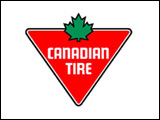People want to know, and they are turning to Google to find out! Well I’m not sure if Google will give you and accurate response, but I’d like to try!
And I have good news and bad news.
Where should I go first…
Bad News: You Might Not Be a Great Parent…
I recently came across a term in a book on marketing I hadn’t heard before; “illusory superiority.” (Aka the “superiority bias,” the “leniency error,” and most fancy, the “primus interpares” effect.) The simple idea behind these terms is that most people think they are slightly above “the average” when compared to other people.
That may be true for sports, economics, looks, and the like, but I think one place that the theory fails is with parenting. Many, if not most, parents do not think they are good at the job. I would like to suggest that we all take a moment to acknowledge the hard truth that we occasionally (often?) fail the “good-parent” quality test.
We lose our cool and use bad language.
We go AWOL from the family on our phone.
We flip off the guy who cuts us off forgetting the kids are in the back seat.
We opt for quick-and-easy over nutritious meals.
We don’t intervene in the kids fist fight. (“Maybe it will just blow over…”)
We let the baby cry longer than we know we should.
I could go on all day, and the funny thing is I’ll bet you’re adding to this list right now in your head. So, there you have it, we aren’t great parents all the time.
But here is the thing, neither were our parents. (To which you think, “Um no kidding, Sherlock.”) AND YET… society functions!
This is not to minimize pain, or ignore extreme examples of very, very bad parenting (as in the case of abuse). I’m just saying that a ton of adults have learned to fill in the gaps that were left by their very human and fallible parents. I suspect that our kids will also have the capacity to fill in the gaps that were left by their very human and fallible parents.
This is Good News!
Why?
Because it means that even if your parenting is lack lustre some of the time, your kids still have a shot at being wonderful, autonomous, and compassionate individuals.
You are living proof of that.
So, take a moment. Collect yourself and be honest. There are places you fail as a parent, what will you do about it? Because what you do about it is usually what separates the parents who have greater and lesser success.
Quick diversion: Dealing with Your Own Pain Will Make You a Better Parent!
Can I just offer one quick piece of advice here? Did you know that even if you had really rotten parents, they still taught you something important? Like maybe they were prime examples of what not to do. And guess what? It’s possible to be grateful for their example.
Learning to be grateful is an extremely powerful tool when it comes to dealing with pain, even the source of the pain.
Last week I posted a question on my Facebook page asking for examples of positive things parents told their kids that stuck with them. When I copied and pasted the comments, I had TEN PAGES of responses! The point is we can always learn something from our parents – even if they weren’t great parents.
(By the way, if you want me to send you a pretty PDF of all those quotes just go here and I’ll email it to you!)
Good Parents Look for Ways to Improve!
Just a cursory, informal inquiry will prove that all parents have weaknesses and fall short. Therefore, I’m going to suggest that what actually makes a great parent is simply someone who finds ways to get better at what they struggle with.
First, Some Inspiration
I have a good friend, who is an amazing mom. A number of years ago her children were removed from her home because she was a meth user, and that devilish drug disrupted her ability to safely care for her kids. It was tragic! But she refused to accept defeat! She worked at her addiction. She got out of the community where she was influenced toward self-destruction, joined an amazing AA group, and sought out help!
The result? She got her kids back!
Listen, that is hard work, especially when you are dealing with a meth addiction. And she has kept in touch with the foster parents who looked after her kids while they were in care. If you saw her you might not immediately see how far she has come but she is a good mom! She improved herself!
How can you follow her example?
1. Practice Being Present
This one is first because it is easily the most difficult part of parenting for me. Simply put, I prefer my phone to being an active parent. Like many parents, I’m often exhausted after a day of work. Being creative, writing, and helping parents is draining and there is nothing easier than to lie on the couch and enjoy watching people hurt themselves in Fail Army Videos.
Pure joy.
Absolutely absent.
So, what do I do? When I feel convicted about being absent, I invite my kids to watch with me! (Face palm.) COME ON THOM! Put the phone down. Play a game. Read a book to the kids.
Did you know that 10 minutes of undivided attention with your child can change their behaviour the following day? It’s just true. Our kids want to be with us.
Put the phone down. Turn off the TV. Eat dinner together. Communicate! Being present will absolutely improve your parenting success!
2. Ask for Help
Don’t fool yourself. You need help AND there are tons of people who want to help.
Here are some ways you can ask for help:
- Ask your friend for the best parenting book they have read.
- Search for top rated parenting blogs.
- Go to a spiritual advisor in your life for advice.
- Find someone with older kids who aren’t incarcerated and ask them how they accomplished that feat.
- Ask your parents for help. It’s a bit hard but they might be thrilled to give solicited advice for once!
3. Add Tools to Your Parenting Tool Kit
Once you’ve practiced being present and asked for help now it’s time to get serious about adding tools to your parenting tool kit.
Reading a book is great, but only if you do what the book is suggesting. For some of the best parenting books out there I recommend Daniel Siegel. His book Brainstorm is filled with exercises to make you a better parent to your adolescent! (Proving that there is always hope.)
If you want to dive even deeper though, consider taking some training in Trust-Based Relational Intervention®. I am a TBRI® Practitioner and I can tell you every time I teach a workshop, I feel convicted and come home trying to be a better parent.
Whatever you do, do something! Find a tool to try as a parent and intentionally implement it today!
Thom Van Dycke has worked with children and youth since 2001 and is a passionate advocate for healthy foster care. Together with his wife, since 2011, they have welcomed 30 foster children into their home. In 2017, Thom Van Dycke was trained as a Trust-Based Relational Intervention Practitioner.



